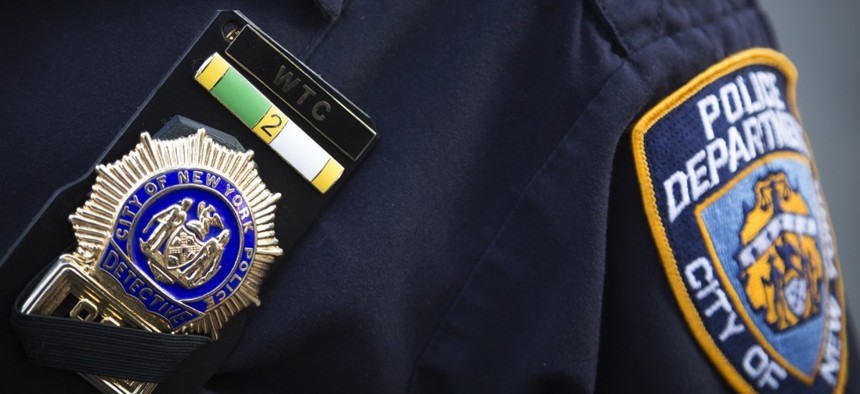This Major Police Organization Just Formally Apologized for “Historical Mistreatment” of Minorities


Connecting state and local government leaders
Will it change anything?
The head of a major police organization has apologized to communities of color for the role police officers have historically had in their discrimination, particularly in the United States. Terrence Cunningham, who is the chief of police in Wellesley, Massachusetts, and president of the International Association of Chiefs of Police (IACP), delivered the apology at the IACP’s annual meeting in in San Diego on Oct. 17.
The IACP boasts the membership of 18,000 police chiefs from around the world. Its historical apology comes when tensions between police and many American citizens are high, following a string of high-profile shootings of people of color. Cunningham did not address those shootings, instead framing his remarks around past injustices carried out by police enforcing discriminatory laws “enacted by federal, state, and local governments.”
Cunningham said he hopes that trust between communities and law enforcement can be rebuilt. Here are his full remarks, posted on the organization’s website:
I would like to take a moment to address a significant and fundamental issue confronting our profession, particularly within the United States. Clearly, this is a challenging time for policing. Events over the past several years have caused many to question the actions of our officers and has tragically undermined the trust that the public must and should have in their police departments. At times such as this, it is our role as leaders to assess the situation and take the steps necessary to move forward.
This morning, I would like to address one issue that I believe will help both our profession and our communities. The history of the law enforcement profession is replete with examples of bravery, self-sacrifice, and service to the community. At its core, policing is a noble profession made up of women and men who have sworn to place themselves between the innocent and those who seek to do them harm.
Over the years, thousands of police officers have laid down their lives for their fellow citizens while hundreds of thousands more have been injured while protecting their communities. The nation owes all of those officers, as well as those who are still on patrol today, an enormous debt of gratitude.
At the same time, it is also clear that the history of policing has also had darker periods.
There have been times when law enforcement officers, because of the laws enacted by federal, state, and local governments, have been the face of oppression for far too many of our fellow citizens. In the past, the laws adopted by our society have required police officers to perform many unpalatable tasks, such as ensuring legalized discrimination or even denying the basic rights of citizenship to many of our fellow Americans.
While this is no longer the case, this dark side of our shared history has created a multigenerational—almost inherited—mistrust between many communities of color and their law enforcement agencies.
Many officers who do not share this common heritage often struggle to comprehend the reasons behind this historic mistrust. As a result, they are often unable to bridge this gap and connect with some segments of their communities.
While we obviously cannot change the past, it is clear that we must change the future. We must move forward together to build a shared understanding. We must forge a path that allows us to move beyond our history and identify common solutions to better protect our communities.
For our part, the first step in this process is for law enforcement and the IACP to acknowledge and apologize for the actions of the past and the role that our profession has played in society’s historical mistreatment of communities of color.
At the same time, those who denounce the police must also acknowledge that today’s officers are not to blame for the injustices of the past. If either side in this debate fails to acknowledge these fundamental truths, we will be unlikely to move past them.
Overcoming this historic mistrust requires that we must move forward together in an atmosphere of mutual respect. All members of our society must realize that we have a mutual obligation to work together to ensure fairness, dignity, security, and justice.
It is my hope that, by working together, we can break this historic cycle of mistrust and build a better and safer future for us all.
Hanna Kozlowska is a reporter at Quartz, where this article was originally published.

NEXT STORY: How a Refugee Resettlement Plan Stirred Controversy in Vermont




